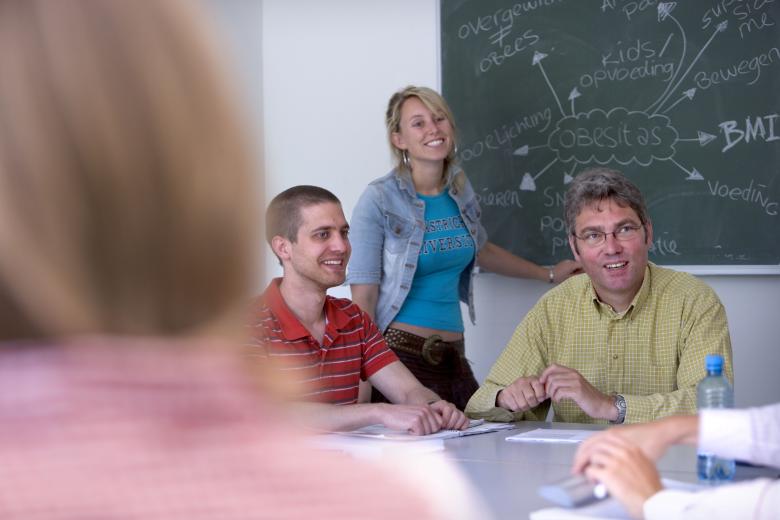“This scientific study was our salvation”
When Carla Reintjens from Eijsden was asked to participate in a scientific study of immunotherapy, it was immediately clear to her husband: “That was our salvation! I thought it was a good idea, because I only read positive things about immunotherapy on the internet.” And although Carla dreaded it, she finally said yes. Two and a half years later, she is still cancer-free.
At the end of October 2015, it turned out that the persistent cough of Carla Reintjens (57) was a symptom of lung cancer—a lump of eight centimetres in her lungs and metastasis in her pelvis. She soon began the first of three courses of chemotherapy, in combination with radiation in Maastricht. Immediately afterwards, she was asked by her doctor whether she wanted to participate in the scientific study. Tired of her veins being poked and prodded, she was initially very much dreading the process. Placing a portacath, which would save her from even more needles, turned out not to be possible under anaesthesia, which she would have preferred. But in the end, she said ‘yes’, to the great relief of her husband Gerrie.
Six rounds with severe side effects
Carla went through a three-week cycle six times. For the first week, she had to go to the MAASTRO Clinic on Monday, Wednesday and Friday for immunotherapy. During the second week, she could set her clock to the side effects. “I particularly hated the kind of nerve pain in my arms”, she recalls. “It’s unmanageable. Plus, the intense itching all over my body in the late evening.” The third week went fine again, after which she had to return to Maastricht a week later for a new ‘round ‘. When she finished the process at the end of August 2015, the side effects fortunately ceased immediately.
Enjoying every day
Since then, she regularly goes through the scanner to see how the cancer is developing. “Until now, it has always been stable, or under control”, says her husband Gerrie. “Then you’re relieved every time. Of course, we don’t know how she would be if we hadn’t taken part in the study. But we’ve had a lot of confidence in this and I think it’s well-placed.” They are enjoying every day, even though life is less carefree than before the cancer diagnosis.
The fact that there was a need for animal testing prior to her immune therapy, Carla thinks is ‘not nothing’. “But, isn't that happening for all the medicines we have?” Gerrie believes it is important that scientists continue to look for better treatments, even if that is not possible without laboratory animals for the time being. “I’m convinced that as soon as there is a good alternative, they will gladly go for it.”
Dr. Evert van Limbergen, Radiotherapist-oncologist at Maastro Clinic/MUMC+:
“The results of Carla Reintjens are exceptional, because I think it is very unlikely that we could have achieved this with the regular forms of treatment that are available. With radiation, it is quite often possible to completely kill tumours. But if a patient already has metastases, it means that there are also groups of cancer cells elsewhere in the body that almost certainly will develop later into new tumours. That does not seem to be happening with this patient. We’re seeing the same thing in her that what we saw before in laboratory animals: tumours outside the irradiated area also disappeared and no new ones returned, not even after the treatment has ended.”
Also read
-
A strong education network for Brabant and Limburg: better alignment, less dropout
On November 24, 2025, secondary schools (VO) and higher education institutions (HO) in Brabant and Limburg will sign up for the Education Network South Netherlands: one VO-HO network that will improve the flow of students to further education and reduce dropout rates.

-
Andrés Caceres Solari on No room for Human Rights in Gaza and Ukraine: How the Law Legitimizes Urban Devastation
Pick Our Brains Session with Andres Caceres Solari

-
AMIBM hosts the final Realise-Bio conference
The Aachen Maastricht Institute of Biobased Materials (AMIBM) hosted last week the third and final Realise-Bio annual conference, bringing together the Dutch and German bioeconomy ecosystems at the Brightlands Chemelot Campus.
